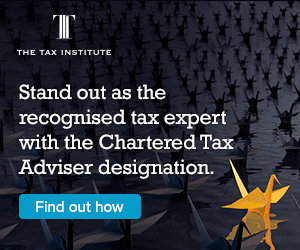Keeping up to date on current tax legislation and case law is essential for successful tax professionals. Yet, finding the time and motivation to continually learn can sometimes be difficult.
A study found that a whopping 80 to 95 per cent of students procrastinated regularly, particularly when it came to completing assignments and coursework (Psychology of Procrastination). And it can cut across all areas of their lives. They’ll leave important work to the last minute, miss opportunities to secure an early bird discount, cram the night before exams, and file their tax returns late.
In this post, we’ll explain how putting off important tasks is something many of us do, explain how to stay motivated while learning, and provide 7 suggestions so you can say goodbye to procrastination.
1. Procrastination is not a time management issue
One of the first steps of getting motivated is to spend some time discovering why you’re procrastinating. What is really behind your self-discipline challenge? Is it because you’re overwhelmed, and you don’t know where to start? Are you concerned that the task is beyond your abilities? Or are you waiting for the perfect time to begin?
Knowing and understanding what’s holding you back will help you find the most effective way to overcome it and apply some self-discipline, so you can achieve your goals.
2. Know you’re objective
What do you want to achieve? Is it the prestigious Chartered Tax Adviser (CTA) designation, gain the qualification and experience necessary for tax agent registration, or for some other purpose, it becomes easier to remain focused if you clarify your reason for studying.
Do you want to specialise in a certain area of tax? Are you seeking a new role or promotion? Are you hoping to improve your professional status?
Write it down, save it somewhere visible, and keep your end goal in mind.
3. Create a study routine aligned with key dates in your program
Put all your deadlines in the diary – when learning resources are made available, exam or assignment due dates, any classes or webinars you participate in as part of your learning program. Make sure all deadlines are visible and you don’t get any surprises.
Understand what you need to achieve for success in your program.
4. Break down the task into manageable chunks
Find out what the estimated time requirement is each week to complete the curriculum. Then carve out enough time in your diary each week in a way that works for you. Do you work better for large periods, or will smaller, more frequent time allocations suit you better?
Make sure your schedule is realistic and achievable, set yourself up for success!
5. Take breaks
With an achievable study calendar scheduled, you can now plan time for you. Give yourself an occasional break so you feel energised and focussed to when it’s time to study.
Do you need to exercise, prepare nutritious food for the week, or enjoy time with your family and friends?
6. Reward yourself
Building in rewards to your study routine can help you to remain motivated and enthusiastic. Not to mention make the whole experience of learning even more enjoyable.
It could be a cup of tea when you finish reading a technical paper, a massage after you’ve completed a module or a dream holiday after completing the program.
7. Grab a study buddy
If you find learning by yourself makes it all a bit more difficult, lookout for ways that you can share the experience with others. Get inspiration and support from peers or colleagues who are going through a similar experience. Interact with lecturers and classmates, online or face to face, in discussion forums, webinars and phone calls. Rather than studying in a vacuum, learn from each other, perhaps by sharing your tips and hearing about things that work for them that you might try. Test each other, challenge each other and learn together.
Finding ways to stay motivated while studying will be critical to your success. Knowing why you’re studying, scheduling a realistic plan including breaks, and making connections can all help you to achieve your goals.
Learn advanced tax topics, critical business and research skills to provide the most considered, technically expert and effectively communicated tax advice a client can receive. Find out more.










